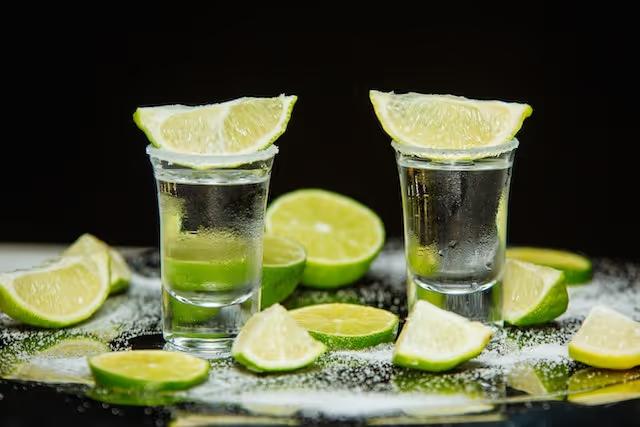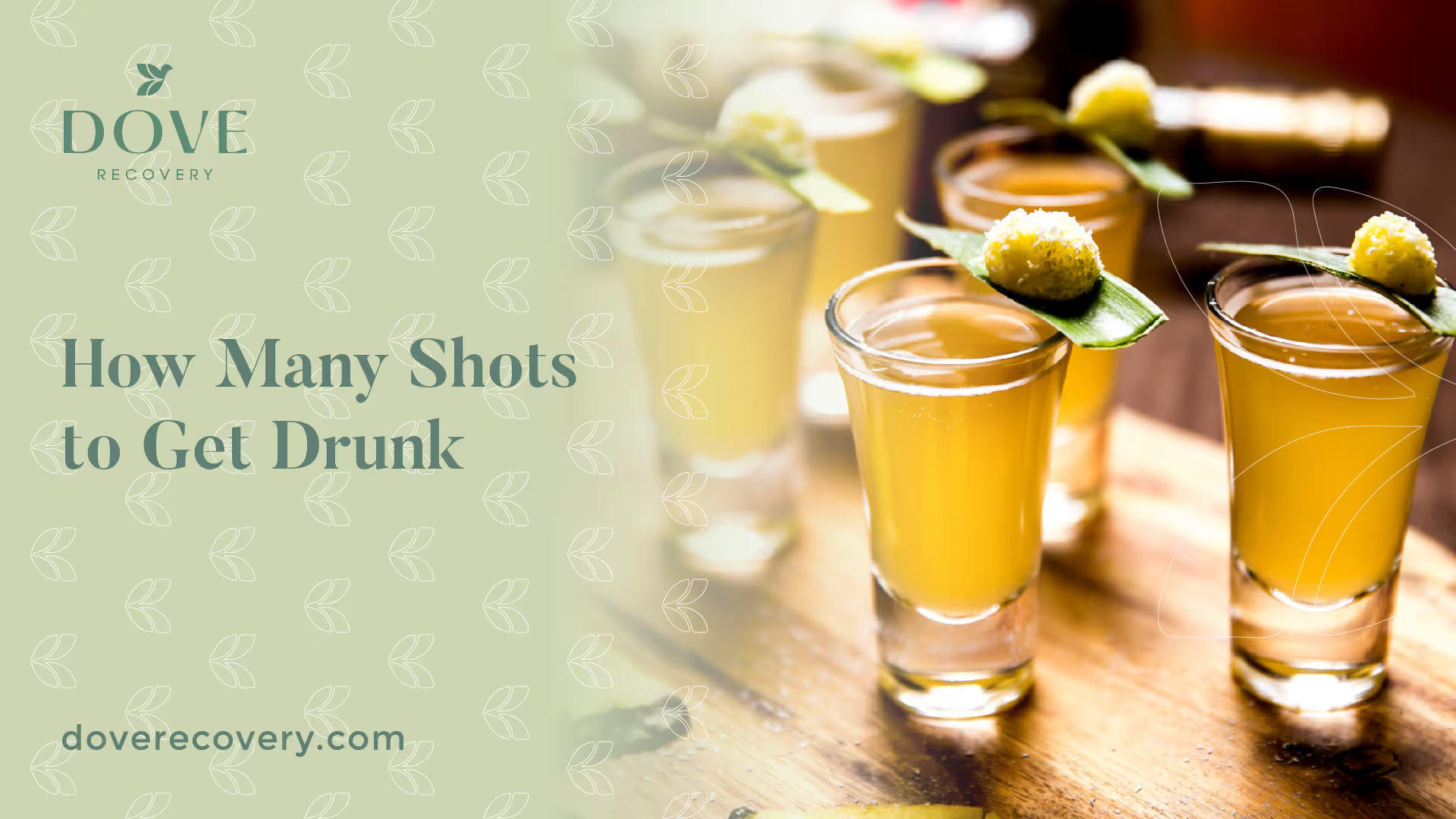How Many Shots to Get Drunk


Have you ever wondered how many shots it takes to get drunk? Well, the answer isn't as simple as you might think. There are several factors that can affect how quickly you become intoxicated, including your weight, gender, and tolerance level. In this article, we'll explore these factors and provide some general guidelines to help you determine how many shots it might take to get you drunk.
Factors that Affect Intoxication
Weight
One major factor that affects how quickly you become intoxicated is your weight. Generally speaking, the more you weigh, the more alcohol you can consume before feeling drunk. This is because alcohol is distributed throughout the body, and a larger body has more water to dilute the alcohol.
Gender
Gender is another factor that can affect how quickly you become intoxicated. Women tend to have less body water than men, which means that alcohol is less diluted in their bodies. This can result in women getting drunk faster than men, even if they weigh the same amount.
Tolerance
Your tolerance level is another factor that can affect how many shots it takes to get drunk. If you regularly consume alcohol, your body may become more tolerant to its effects over time. This means that you may need to consume more alcohol to feel the same level of intoxication as someone who doesn't drink as often.
How Many Shots to Get Drunk?
Alcohol Content
Another factor that affects how many shots it takes to get drunk is the alcohol content of the drink. Different types of alcohol have different alcohol percentages. For example, a shot of tequila typically contains 40% alcohol, while a shot of vodka may contain 30-50% alcohol depending on the brand. The higher the alcohol content, the fewer shots it will take for you to become intoxicated.
Drinking Speed
The speed at which you consume your drinks can also affect how many shots it takes to get drunk. If you drink too quickly, your body won't have time to process the alcohol before more enters your system. This can lead to faster intoxication and potentially dangerous levels of drunkenness.
Food Intake
Eating food while drinking can help slow down the absorption of alcohol into your bloodstream. This means that if you eat before or during drinking, it may take longer for you to feel intoxicated even after consuming several shots.
Types of Alcohol
Different types of alcohol have varying levels of congeners, which are impurities produced during the fermentation process. Congeners can contribute to hangovers and may cause you to feel intoxicated more quickly. Here is a list of common types of alcohol and how they can affect your level of intoxication:
Dark liquors
Dark liquors like whiskey and rum tend to have higher levels of congeners than clear liquors like vodka and gin. This means that it may take fewer shots of whiskey or rum to feel drunk compared to the same amount of vodka or gin.
Clear liquors
As mentioned earlier, clear liquors like vodka and gin tend to have lower levels of congeners than dark liquors. This means that it may take more shots of clear liquor to feel drunk compared to the same amount of whiskey or rum.
Wine
Wine typically contains 12-14% alcohol by volume (ABV), which is less than hard liquor but more than beer. It's important to be aware of the ABV when consuming wine, as drinking several glasses could result in intoxication.
Beer
Beer ranges from 4-8% ABV depending on the brand and type. While beer contains less alcohol than hard liquor or wine, drinking several bottles or cans could still lead to intoxication.
It's also worth noting that mixed drinks can vary greatly in their alcohol content depending on the recipe and bartender. Some mixed drinks may contain multiple shots of hard liquor, while others may have just a splash for flavoring. It's important to ask about the alcohol content before ordering a mixed drink if you're trying to gauge how many shots it might take for you to feel drunk.
How Fast Can You Feel the Effects of Alcohol?
When you consume alcohol, it doesn't immediately reach your bloodstream. It first goes through your digestive system where it's absorbed into the bloodstream through the small intestine. From there, it travels to your liver where it's metabolized and broken down.
The rate at which alcohol is absorbed into your bloodstream depends on several factors, including:
- The strength of the drink
- Whether or not you've eaten
- Your weight and gender
- Your overall health
Generally speaking, you can start feeling the effects of alcohol within 10-30 minutes after consuming a drink. However, this can vary depending on the factors listed above.
It's important to note that just because you don't feel drunk right away doesn't mean that you're not being affected by alcohol. In fact, some people may feel more sober than they actually are due to their body's natural tolerance or other factors like medication use or sleep deprivation.
To stay safe while drinking, it's always best to pace yourself and be aware of how much you're consuming. Remember that different types of drinks can have varying levels of alcohol content, so what might seem like a harmless amount could actually be quite potent.
Alcohol Consumption: Male vs Female
Alcohol consumption is often viewed as a social activity, but it's important to be aware of the different ways that men and women metabolize alcohol. Here are some key differences:
- Body composition: Women tend to have a higher percentage of body fat and less water than men. This means that even if a woman and a man weigh the same amount, the woman may feel the effects of alcohol faster because she has less water in her body to dilute it. As a result, women may become more impaired than men after consuming the same amount of alcohol.
- Enzyme production: Women also produce less of the enzyme that breaks down alcohol in the stomach compared to men. This means that alcohol remains in a woman's bloodstream for longer periods of time, leading to higher blood alcohol concentrations.
These differences in alcohol metabolism mean that women should be especially careful when drinking, as they may need to consume less alcohol to feel the same level of intoxication as a man. It's also important for men to be aware of these differences, as they may not realize how much more quickly their female friends or partners are becoming intoxicated.
Overall, it's important for everyone to be responsible when consuming alcohol and to monitor their own intake as well as the intake of those around them. By being aware of the factors that affect intoxication levels, we can all enjoy alcohol safely and responsibly.
General Guidelines
While there is no one-size-fits-all answer to the question of how many shots it takes to get drunk, there are some general guidelines that you can follow. Keep in mind that these are just estimates, and your personal experience may vary.
Moderate Drinking
The National Institute on Alcohol Abuse and Alcoholism defines moderate drinking as up to one drink per day for women and up to two drinks per day for men. A "drink" is defined as 12 ounces of beer, 5 ounces of wine, or 1.5 ounces of distilled spirits (such as vodka or whiskey). If you stick to these guidelines, you are unlikely to become intoxicated.
Getting Drunk
If you're looking to get drunk, it's important to pace yourself and drink responsibly. Generally speaking, it takes about 3-5 shots (1.5-2.5 ounces each) within an hour to become intoxicated. However, this can vary depending on your weight, gender, tolerance level, and other factors.
Avoiding Intoxication
If you want to avoid becoming intoxicated, it's important to know your limits and stick to them. This means drinking slowly, spacing out your drinks, and alternating alcoholic beverages with non-alcoholic ones. It's also a good idea to eat before and during drinking, as food can slow down the absorption of alcohol into the bloodstream.
The Effects of Mixing Different Types of Alcohol
Mixing different types of alcohol can have unpredictable effects on your body. It's important to understand how different types of alcohol affect you individually before mixing them.
When you consume multiple types of alcohol, your liver has to work harder to metabolize all the different substances. This can lead to increased levels of toxicity in your bloodstream and potentially dangerous side effects like vomiting, blackouts, and even alcohol poisoning.
Another factor to consider is the sugar content in mixed drinks. Sugary mixers like soda or juice can increase the rate at which alcohol is absorbed into your bloodstream, leading to faster intoxication. Additionally, sugary drinks can cause dehydration and make hangovers worse.
If you do choose to mix different types of alcohol, it's important to do so in moderation and with caution. Stick to low-sugar mixers and avoid drinking too many different types of alcohol in one sitting. And as always, be sure to stay hydrated by drinking plenty of water throughout the night.
Conclusion
In conclusion, the question of how many shots it takes to get drunk is a complex one that depends on several factors. While there are some general guidelines that you can follow, it's important to know your own limits and drink responsibly. If you're ever unsure about your level of intoxication, it's always better to err on the side of caution and avoid driving or engaging in other risky behaviors.
If you or a loved one are experiencing an alcohol addiction and are looking for an addiction treatment center in Columbus, Ohio, contact the team at Dove Recovery today.
Sources:
